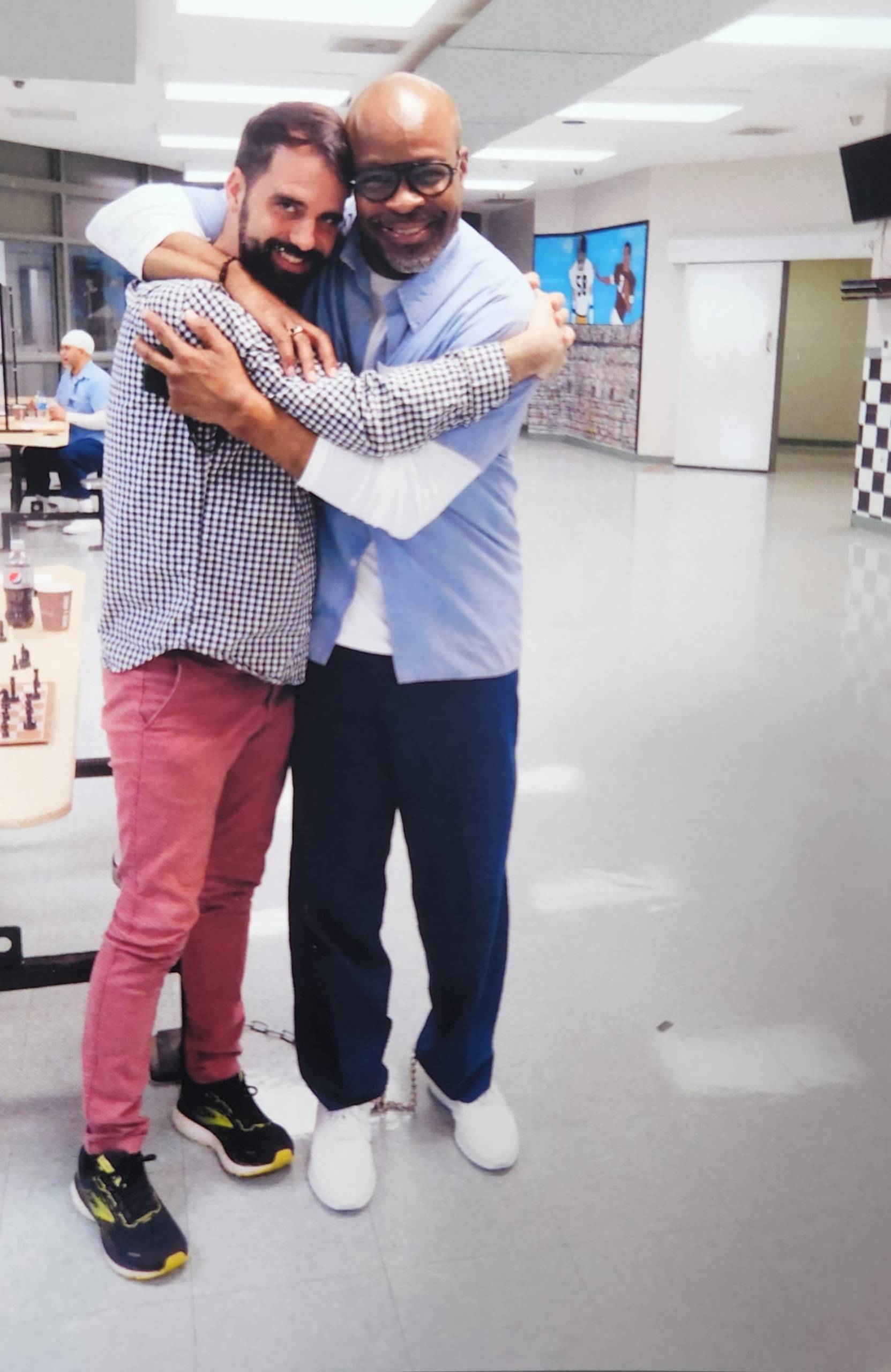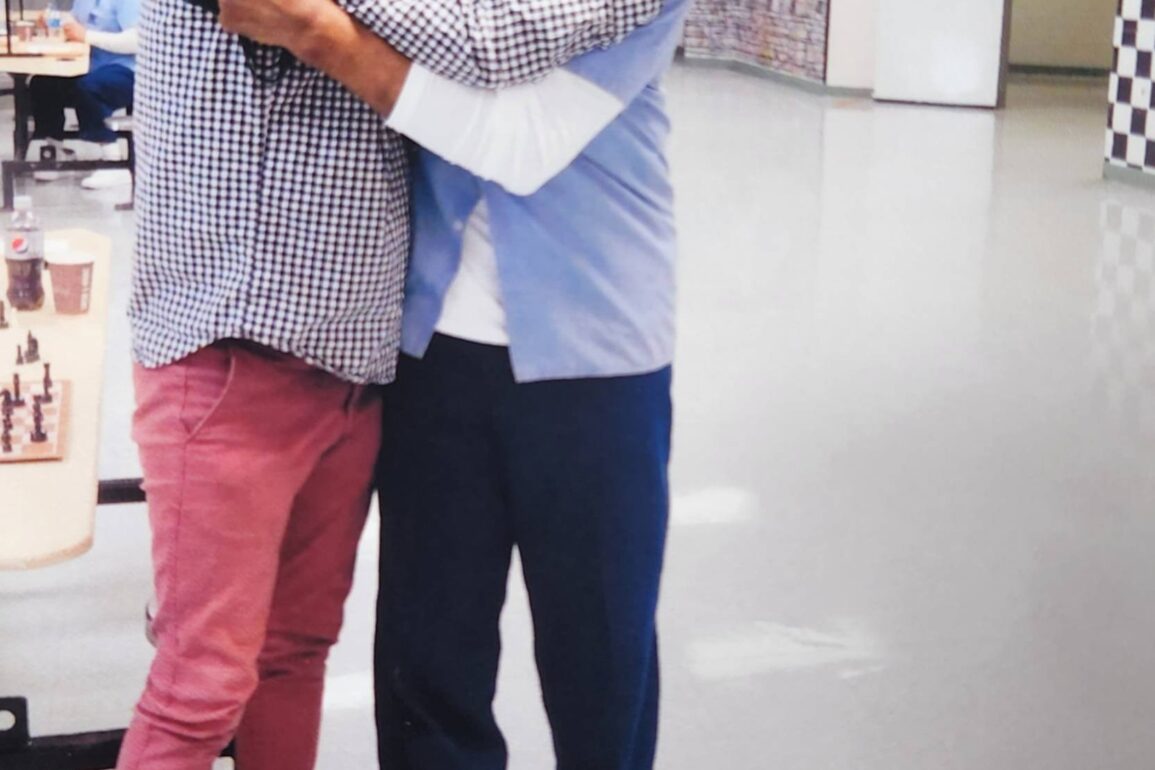LaMar was serving 15 years to life at the Southern Ohio Correctional Facility for a 1989 murder when riots broke out in April 1993. At the end of the 11-day standoff, nine inmates and a prison guard were dead, and in 1995 LaMar was convicted for murdering five prisoners. He’s steadfastly maintained his innocence, and it was only in the aftermath of George Floyd’s death in 2020 that Marquès came into the picture.
Born and raised in an industrial town outside of Barcelona, Marquès has long drawn inspiration from Catalonia’s heritage of radical politics. He and his wife, sculptor Mia Pearlman, happened to live in the same Brooklyn building as Brian Jackson, the keyboardist and composer best known for his prolific creative partnership with the late Gil Scott-Heron.
As Black Lives Matter demonstrations swept the nation, “we had lots of conversations around the George Floyd protests,” Marquès recalls. “The question kept coming up, ‘Why don’t we do something before the government kills [people]?’ Brian’s wife had read Keith’s book and that made connections. Keith loves jazz and John Coltrane, and he knows so much about it.”
Talking to LaMar is a bracing experience. People often describe music as a lifeline, but in his case it provides a soul-bearing creative outlet, essential emotional sustenance and a direct connection to fellow jazz devotees. He grew up in Cleveland surrounded by sacred and secular Black popular music, and didn’t really discover jazz until he was years into his sentence. On death row, he immersed himself in the music of Thelonious Monk, Nat “King” Cole and, particularly, John Coltrane, “all these people who created this canon of creativity,” he says.
“I started reading history books, learning and growing. My loyalty to this art form grew along with my knowledge of this art form. It’s an integral part of my life. I start listening when I wake up and throughout the day it helps me stay focused.”
He’s all too aware of the tension between his incarceration and jazz’s liberatory impulse, though he echoes the epiphany of Albert Camus’ Meursault in The Stranger in describing his mindset. LaMar celebrates the music as a vehicle for freedom, but it’s the embrace of a man who has liberated himself.
“I’m already free,” he says. “I just happen to be in this place, death row. But we’re all leaving this planet. What are you going to do between now and then?”

For the Oct. 3-4 performances at Mr. Tipple’s, which are fundraisers for the legal campaign to overturn his sentence, LaMar will be reciting pieces from Freedom First via phone from death row as Marquès leads a quartet featuring bassist Joshua Thurston-Milgrom, drummer Zack O’Farrill and tenor saxophonist Kazemde George.
O’Farrill, the third generation of an illustrious jazz clan, and the Berkeley-reared George have been working with Marquès since he first assembled some 30 musicians for performance protests in 2020. Since then, more than 70 musicians have participated in the project, including Berkeley-raised pianist-composer Samora Pinderhughes, who conducted a public conversation with LaMar last year as part of The Healing Project, an extensive installation at Yerba Buena Center for the Arts.
This post was originally published on this site be sure to check out more of their content.







